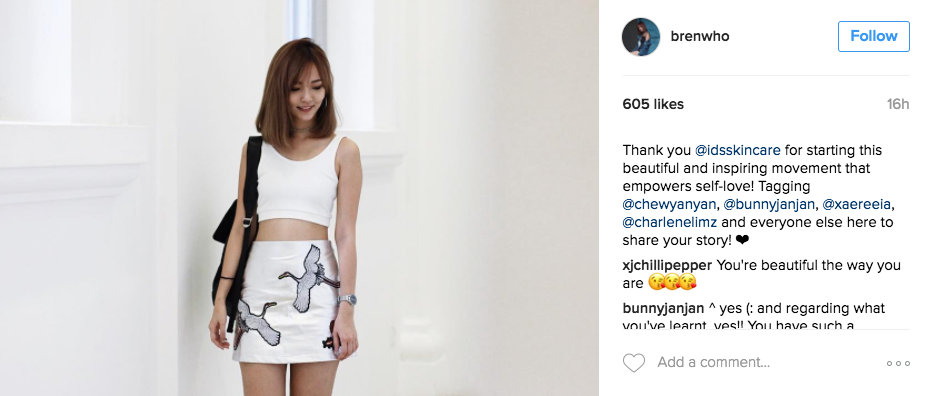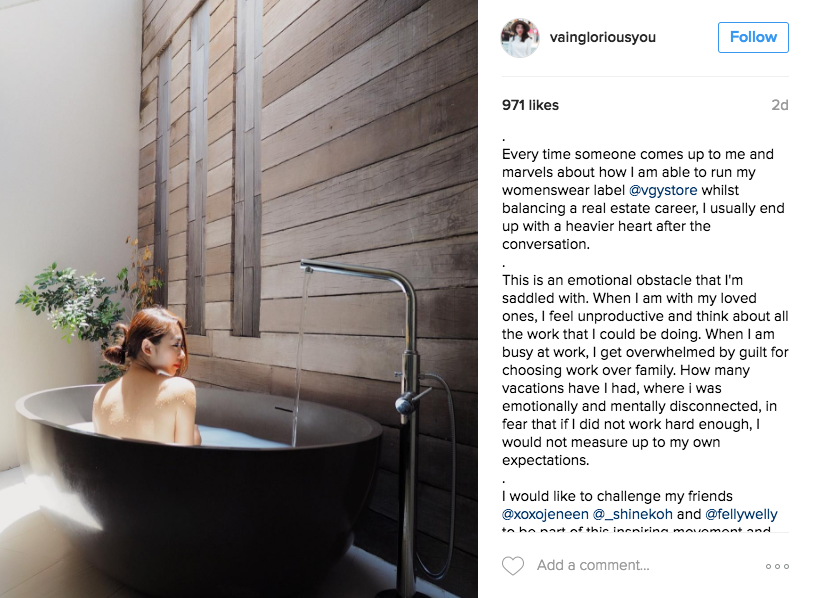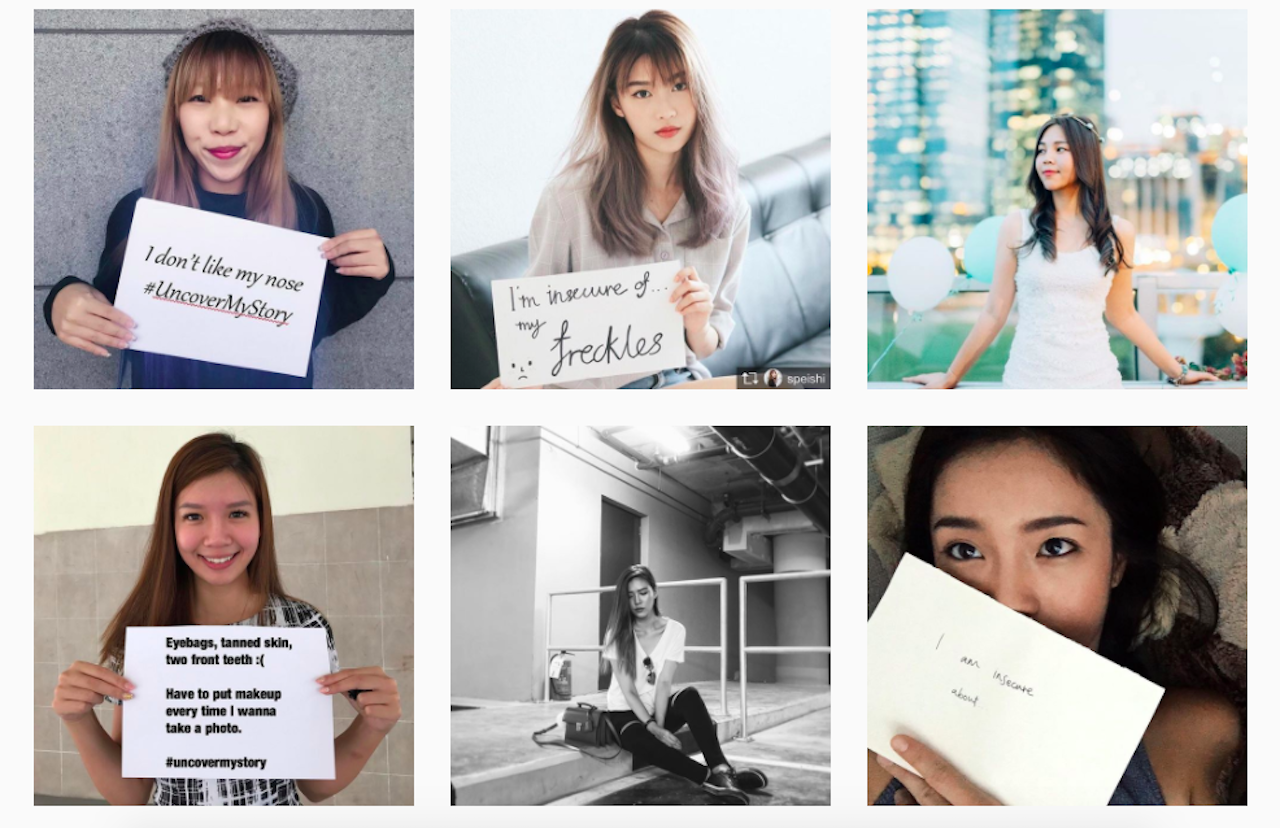Over the past week or so, several social media influencers took to Instagram to share about their insecurities. One talked about battling acne while another admitted to being insecure about her body not being toned enough. An actor, @ongxavier, even discussed the challenges of having Tourette Syndrome. So far, so heartwarming.
This movement (“NOT AN AD”—exclaims one blogger) by IDS Skincare, aptly named #uncovermystory, claims to have been launched to encourage everyone to face their insecurities. Our flaws, these social media celebrities claim (on behalf of IDS, I suppose), are nothing to be ashamed of.
Until you find out that the company’s philosophy is to “empower women to stop hiding behind their imperfections”— something only possible if you buy and use their products.
We’re not sure about you, but isn’t it a little ironic that a company that aims to help erase your flaws also wants women to “celebrate their natural selves”?

At this point, “empowerment marketing” is nothing new. Most of us still remember Dove’s ‘Choose Beautiful’ campaign from 2 years ago which sparked a huge internet backlash. The Guardian accused Dove for “passing off somewhat passive-aggressive and patronising advertising as super-empowering, ultra PR-able social commentary.” Even Buzzfeed’s beauty editor resigned in protest.
With #uncovermystory, this is hardly any different.
If the goal is truly to “empower women to stop hiding behind their imperfections,” why aren’t we being told to just stop using facial products entirely?
Because this is a marketing campaign. And we get that it’s marketing. But does it have to be this manipulative? Why not try a little honesty with a movement against make-up? Why not talk about how women are wasting precious hours every morning—time that could be spent sleeping, getting some exercise or having breakfast—on elaborate, potentially unnecessary make-up routines?
#uncovermystory might claim to inspire confidence, but this distracts from the fact that there is no way IDS Skincare really wants this. If we were all to embrace our acne, our facial scars, our eye bags and our oversized pores, companies like IDS Skincare would go out of business.
By hiding behind their objective, which is for “women to be confident enough to leave home without make-up,” IDS Skincare conveniently leaves out the fact that this confidence is only possible if you have perfect skin. It’s why they sell dermatological solutions, not make-up.
Perfect skin, not self-confidence, is the real goal. If self-confidence happens to be a by-product of your perfect skin, well, good for you.

With the majority of these confessions coming from conventionally attractive, blogger-pretty Chinese women—many of whom have successful careers driven by how they look—these stories are as relatable as your first world problems are to a homeless person in Bangladesh. While I get that the aim is to show how even beautiful people have problems, I wonder why this movement wasn’t spearheaded by more regular folk.
By using social media influencers, the message seems to be that you too can embrace your insecurities, so long as you look like these people. And if you’re afraid that you will never look pretty enough or be popular enough for your insecurities to seem relatively surmountable, don’t worry. IDS Skincare is here to guide you on your journey to perfection.
While it’s important that we rise above our insecurities, such attempts to flip the conversation by forcing self-confidence and beauty products into some sort of unholy union simply takes consumers for idiots.






